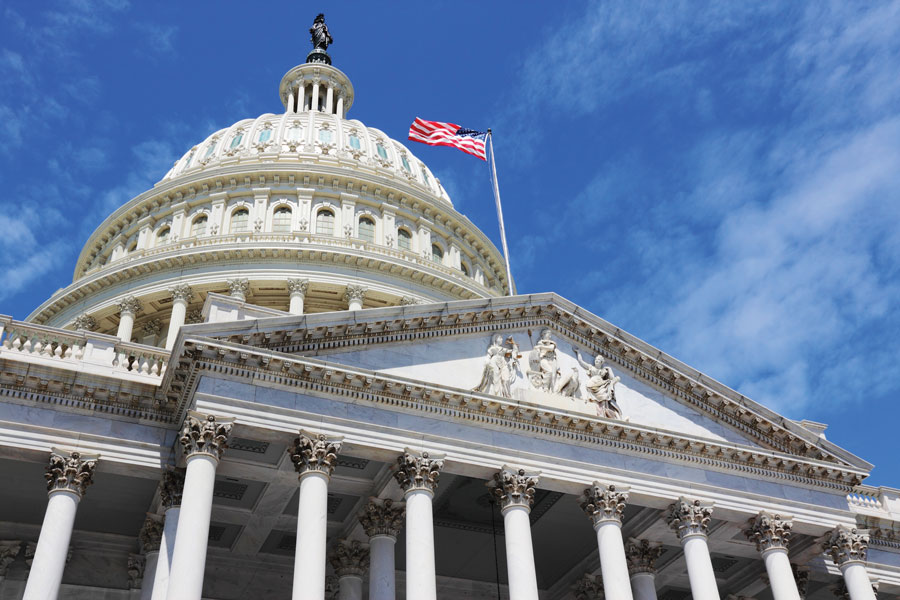

A funding bill working its way through the House Appropriations Committee would prevent the Securities and Exchange Commission from completing work on a proposal to ease rules on private securities offerings.
On Wednesday, a House Appropriations subcommittee approved a bill that would increase the SEC’s budget by $105 million for fiscal 2021.
The bill contains a provision, known as a rider, that would prohibit the SEC from allocating any funds to implement the private market reform measure until it approves a 2013 proposal that would require the agency to collect more data about unregistered securities and potential investor harm from their sales.
The federal funding process is just beginning. The bill containing SEC funding is likely to be approved by the full House, where Democrats are in the majority. It faces long odds in the Republican-controlled Senate.
For years, the annual effort to fund the government has required Congress to pass continuing resolutions before approving an omnibus bill. In such a scenario, riders can be negotiating chips, but many fall by the wayside.
The rider is another signal that Democrats are uneasy with the SEC’s push to expand private markets. In a recent hearing, House Financial Services Committee Chair Maxine Waters, D-Calif., pressed SEC Chairman Jay Clayton not to proceed with the proposal.
“It’s perfectly logical for Congress to say [to the SEC] that you need to pause and evaluate what’s going on in our private markets before you proceed with a radical rewriting of our securities laws that puts investors and public markets at risk,’ said Barbara Roper, director of investor protection at the Consumer Federation of America.
An SEC spokesman declined to comment.
“The proposed amendments would simplify, harmonize, and improve certain aspects of the exempt offering framework to promote capital formation while preserving or enhancing important investor protections,” the SEC states in the proposal.
Capitol Hill Republicans are pushing the SEC to complete the rulemaking.
“These efforts will increase opportunities for investors as well as expand access to capital for issuers,” Rep. Patrick Henry, R-N.C. and ranking member of the House Financial Services Committee, wrote in a June 8 letter to the agency. “The proposed amendments are a step in the right direction to help companies continue to grow throughout the business cycle.”
In its comment letter on the proposal, the Consumer Federation of America said the SEC was proceeding without understanding the potential impact of increasing the sales of unregistered securities.
“This proposal represents a sweeping redrawing of the line between public and private markets, with the express purpose of making it easier both for issuers to raise capital in exempt offerings and for average retail investors to gain access to those offerings,” Roper and Micah Hauptman, CFA financial services counsel, wrote in a June 4 letter to the agency. “But the Commission never stops to ask whether that is an appropriate goal. It never seeks to determine what the effect would be on the overall health of our capital markets of a proposal that favors private offerings over public offerings.”
Buying unregistered securities is limited to investors who meet income and wealth thresholds. Cracking the private markets markets open to retail investors is a Clayton priority.
In his recent appearance before a House Financial Services subcommittee, Clayton indicated that the SEC intended to proceed with the private offering proposal. The agency is reviewing comment letters. It’s unclear when it will take the next step in the rulemaking.

A new proposal could end the ban on promoting client reviews in states like California and Connecticut, giving state-registered advisors a level playing field with their SEC-registered peers.

Morningstar research data show improved retirement trajectories for self-directors and allocators placed in managed accounts.

Some in the industry say that more UBS financial advisors this year will be heading for the exits.

The Wall Street giant has blasted data middlemen as digital freeloaders, but tech firms and consumer advocates are pushing back.

Research reveals a 4% year-on-year increase in expenses that one in five Americans, including one-quarter of Gen Xers, say they have not planned for.
Orion's Tom Wilson on delivering coordinated, high-touch service in a world where returns alone no longer set you apart.
Barely a decade old, registered index-linked annuities have quickly surged in popularity, thanks to their unique blend of protection and growth potential—an appealing option for investors looking to chart a steadier course through today's choppy market waters, says Myles Lambert, Brighthouse Financial.
